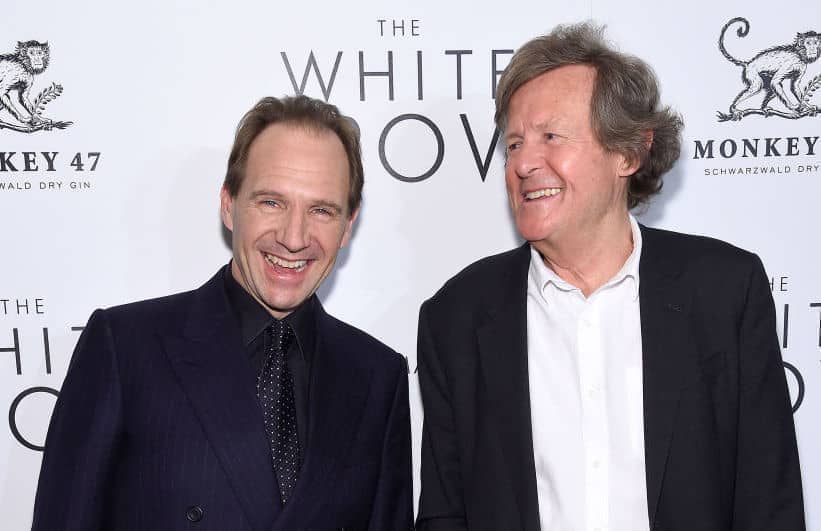If the BBC’s constant tension with various Conservative ministers weren’t enough, now it has another name on its list of critics. This weekend veteran playwright Sir David Hare launched an attack on the corporation for refusing to broadcast his Covid play – and for shunning dramas about the pandemic more generally. ‘It strikes me as so derelict,’ the long-term grandee of the National Theatre vented to the Observer.
Does it now? Or could it be that, with Covid cases once again sitting at the top of the news – and the usual suspects crying out for a return to restrictions – our national broadcaster has wisely decided that viewers might appreciate a break from a subject that’s now approaching its two-year anniversary at the centre of our collective universe. And not a moment too soon, either.
I speak as someone who has a bit of a soft spot for Hare’s play – not least as it was the first production I saw last autumn after six months of being starved of live theatre. And nor was I the only one who broke their cultural fast with Beat the Devil. In fact, it was the first West End play to be performed after lockdown, making it somewhat of an event however you slice it. No wonder tickets sold out weeks in advance (giving us all a preview of the oncoming inflationary storm of 2021).
Is it any wonder that Britain’s most watched show, Squid Game, is a shamelessly implausible thriller which prefers old-school cliff-hangers over real-world issues?
For all the excitement though, Beat the Devil suffered from a fundamental problem: predictability. Not only had its author already taken to the airwaves with his experience of recovering from Covid (an event which then formed the basis of the autobiographical play) but, by the time curtain went up, his experience was hardly novel. Newspapers had already carried dozens of first-hand testimonies of battle-hardened Covid recoverees. It was the new equivalent of the wild swimming essay.
It didn’t help that the play’s conclusion was equally obvious. Who’d have guessed, after all, that a lifelong, big-state socialist would choose to channel his ‘survivor’s rage’ into berating Boris Johnson for not locking down sooner – a decision Hare attributes not to the influence of the government’s scientific advisers, but to its inherent Tory evil-ness. Again – it’s an argument we’ve all heard countless times (not least on the BBC). Do we really need to hear it all again?
And that’s before we get to the fact that Beat the Devil isn’t even a real drama (if we’re being honest). It’s a monologue. Yes, that might be a product of a particularly strange time – when theatres’ overzealous commitment to social distancing meant that only one actor should appear on stage – but let’s not pretend that monologue season was a great period for writing. In truth, monologues are like small-plate restaurants: only the very best are worth the effort.
There may well be decent Covid dramas in years to come but now isn’t the time. Give it a few more years and dramatists will have the benefit of perspective: coming up with stories that actually surprise and enlighten us. Political types like Hare can delve into the red meat from the inevitable public inquiry. Move too quickly (as happened with all those plays commissioned straight after the London riots) and they just end up telling us what we already know.
Of course these editorial grumbles are less important than the real point here: which is that audiences just don’t have the appetite for hard-hitting pandemic dramas at this time – even if they are well-written. And if Hare is correct in accusing the BBC of deliberately avoiding the subject matter, then – for once – its commissioning editors will have correctly read the room.
After all, is it any wonder that – now that Britain is finally beating Covid – our most watched streaming show, Squid Game, is a shamelessly implausible thriller which prefers old-school cliff-hangers (tug of war!) over real-world issues? It’s a similar story in the West End: where the hottest ticket (musicals aside) is a comedy drama about the making of Jaws. And in the cinema, of course, it’s wall-to-wall James Bond, supplemented by Wes Anderson silliness.
If anyone seriously thinks viewers are likely to prefer hearing about David Hare’s sweat-sodden bed-sheets over a bit of dramatic escapism, they are in for a rude awakening. A nightmarish rendition of a 74-year-old man’s bout with Covid might have some utility, I suppose, in persuading the handful of unvaccinated over-65s to get their shot. But as television entertainment – or indeed even the worthier Rethian values of education and information – it’s unlikely to cut the mustard. Broadcasting house is right to pass.






Comments